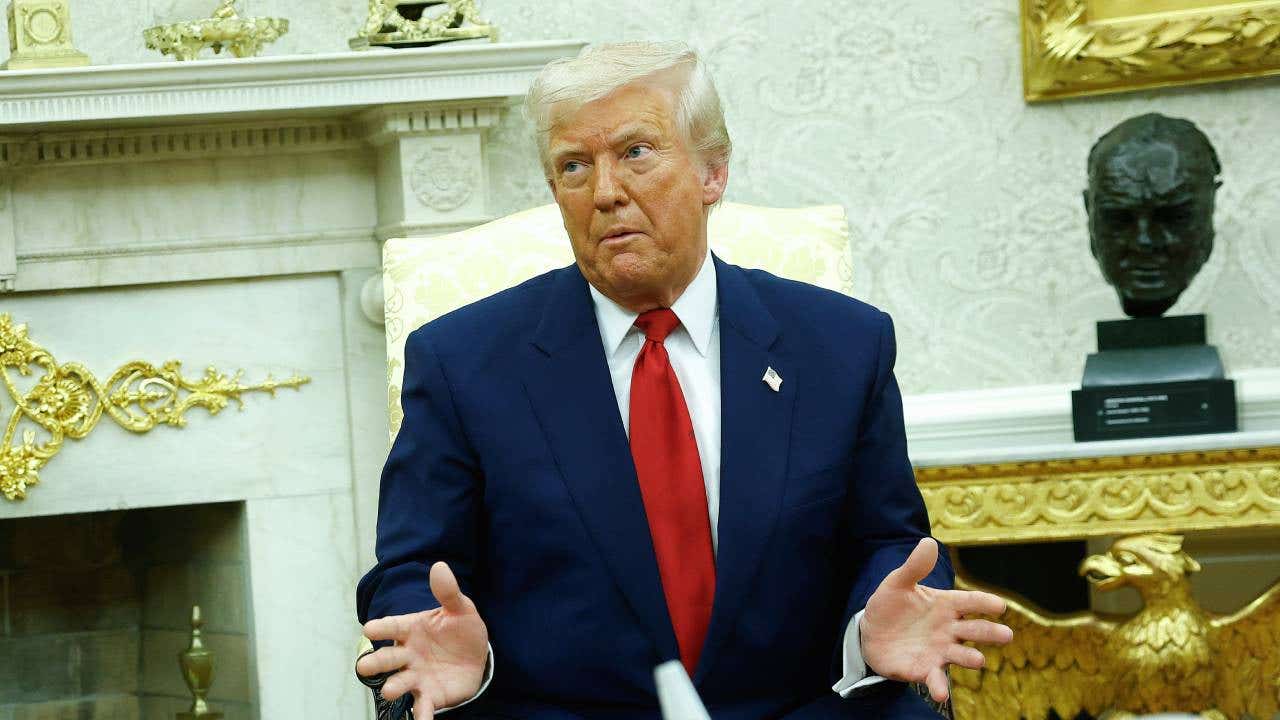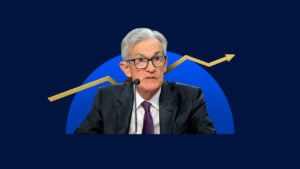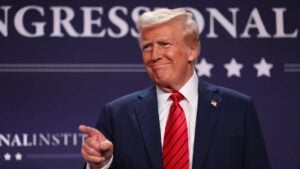Trump’s 90-day tariff ‘pause’ leads to wild reversal in markets — should investors stay on guard?

U.S. President Donald Trump threw markets for another loop on the roller coaster saga of tariffs, announcing that he was pausing the implementation of his “Liberation Day” global tariffs for 90 days on non-retaliating countries. Stocks soared on the day of the news, with the S&P 500 and the Nasdaq closing up 9.5 percent and 12.2 percent, respectively, as investors cheered the decision.
Those moves marked some of the best days ever for these stock indexes, and while positive news about tariffs is welcome, investors still need to stay calm and play the long game.
Trump puts most tariffs on pause, raises them on China
Trump announced the 90-day pause on tariffs from his Truth Social account, and this news rallied investors and gathered the big headlines. Trump also announced that he was lowering the reciprocal tariff to 10 percent during this period, effective immediately. But that news may be overshadowing the fact that Trump actually raised tariffs on China to a whopping 125 percent, starting immediately.
Before the latest salvo in this trade war, Trump had already raised tariffs on China to 104 percent. On Wednesday, China announced that it was raising tariff rates on U.S. goods from 34 percent to 84 percent in response. Wednesday afternoon, Trump followed with his new round of higher rates, a move that Beijing will likely counter soon.
The 90-day delay of global tariffs on nearly 100 countries may signal a thaw in the hardline tactics taken by Trump, and the president said on social media that more than 75 countries “have called to negotiate a solution.” But while the rhetoric may be a bit cooler here, the flames seem only larger with China, America’s third-largest trading partner behind Canada and Mexico.
Individual investors still need to stick to their game plan
So what should investors be doing in the wake of all this volatility-causing uncertainty? Volatility favors Wall Street, as high-powered short-term traders vie with one another for profits. But long-term investors who can remain invested in a broadly diversified portfolio of stocks will likely do fine over time, even if they must endure the volatility and downside that will likely ensue.
In the short term, Trump’s tariffs are causing uncertainty, slowing consumer and business spending and ultimately the overall economy. The spillover here could lead to a recession, and this effect is not likely priced into stocks yet, with investors only weeks ago still expecting a business-friendly administration and, of course, boosting stocks handsomely on this tariff news.
“Uncertainty is an economic headwind of its own,” says Greg McBride, CFA, Bankrate chief financial analyst. “Businesses that face uncertainty don’t go out and hire a bunch of people, don’t expand production or make investments. Even with a delay in the onset of more significant tariffs, it just kicks the can of uncertainty down the road. Volatility will stay high as long as uncertainty prevails.”
While tariffs are off for the moment, they could just as easily be back on in days, weeks or months, as Trump does an about-face. So investors should expect that there are more opportunities for market volatility, as we stare down a “will he, won’t he?” situation on Trump’s tariffs.
Even if the tariff situation is resolved or trade is restored to the status quo, Trump’s maneuvers are eroding long-run trust in America as a stable and reliable trade partner that sticks to its promises. That erosion could cost American businesses and investors over a longer period.
Combine all those things with the potential for a recession that’s not already priced in, and it’s plenty of reason for investors to remain cautious even while sticking to their long-term investing plan.
“The increased odds of recession have required a rapid recalibration on the part of investors, considering the nosebleed valuations the stock market was trading at,” says McBride. “Stocks still aren’t cheap, but a delay in the worst of the tariffs has brightened investors’ mood.”
If you’re looking for expert guidance when it comes to managing your investments or planning for retirement, Bankrate’s AdvisorMatch can connect you to a CFP® professional to help you achieve your financial goals.
Bottom line
Given these factors, investors looking to take advantage of lower stock prices may well have plenty of opportunity to do so in the coming year. That’s why it’s so vital to stick to your investing plan when stocks dip into a bear market, getting neither too fearful or too greedy. Taking an automatic approach — say, buying every week or month regardless of the news — can help take your emotions out of the game, letting you stick to a long-term plan that can build wealth well after Trump is out of office.
Editorial Disclaimer: All investors are advised to conduct their own independent research into investment strategies before making an investment decision. In addition, investors are advised that past investment product performance is no guarantee of future price appreciation.
Why we ask for feedback Your feedback helps us improve our content and services. It takes less than a minute to complete.
Your responses are anonymous and will only be used for improving our website.





